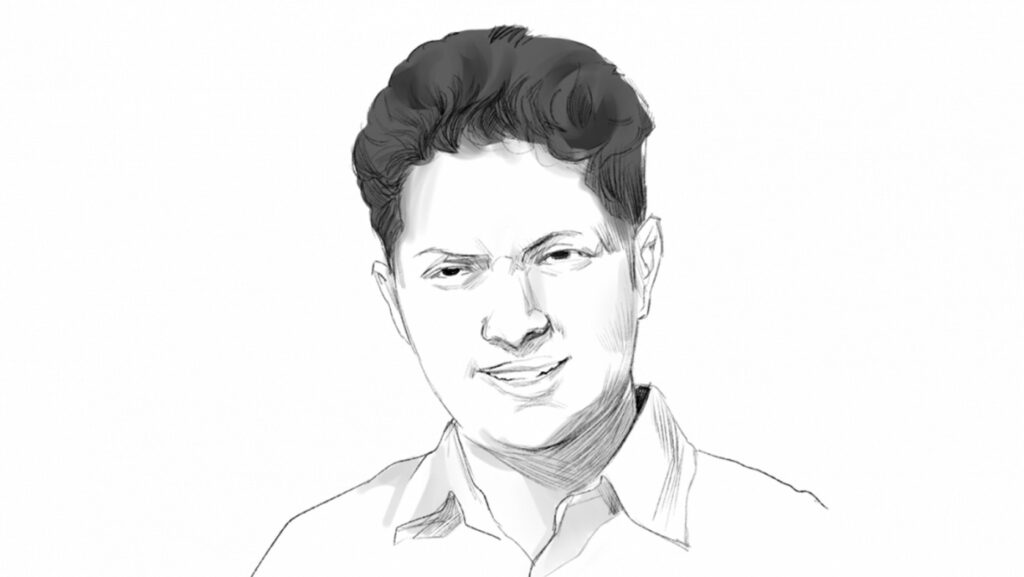The decrease in export income against import expenditure is regarded as the main reason for the reserve crisis. But one of the most important causes behind this is money laundering that’s still prevalent in the country
When Sri Lanka, our close neighbour, declared itself bankrupt due to the reserve crisis, the conversation about reserves began to dominate tea table discussions in Bangladesh. Dwindling reserves and exacerbated economic crises continue to create a sense of unrest among Bangladeshis.
The decrease in export income against import expenditure is regarded as the main reason for the reserve crisis. But one of the most important causes behind this is money laundering that’s still prevalent in the country.
However, money laundering in itself is not easy to understand. It takes place in two ways: within the banking channel and out of the banking channel.
Similarly, there is under-invoicing. This happens when someone exports goods worth $100 in real terms but he tells the authority that he exported $50 worth of goods. In this way, through under-voicing, the $50 dollars isn’t accounted for and laundered out.
Outside the banking channel, money is laundered through Hundi. Suppose an expatriate worker wants to send money back home. If he sends that money through the banking channel, it would enter the country as foreign exchange. But since his family has to convert it into local currency eventually, someone buys his foreign currency abroad and delivers Bangladeshi currency to his family at home. This method is very easy for the family of the sender.
What happened during the early days of the Covid-19 pandemic is a testament to the Hundi and foreign reserve correlation analysis. When the foreign currency entered the economy only through the proper channels during the pandemic, the country’s reserves grew rapidly.
During the initial months of the pandemic, many people lost their jobs and brought home all their money including their savings. Since travelling abroad stopped, the demand for foreign exchange was greatly reduced. As a result, people working abroad had no other way to send money to the country except through proper banking channels.
By taking policy steps like reducing dollar value differences in the kerb market and bank, giving incentives, or by taking strict legal measures against Hundi (illegal) traders, it is possible to increase the flow of foreign exchange through banking channels.
According to Global Financial Integrity (GFI), as seen till 2015, an average of Tk70,000 crore is smuggled from Bangladesh through banking channels every year. Their figures did not include the money laundered through non-banking channels like Hundi.
The GFI report also mentioned an interesting pattern that money laundering increases when elections approach. For example, more than Tk1 lakh crore was laundered before the 2014 elections, which was a 50% increase over the previous year.
The most recent GFI data also mentions only the figures before 2015. Why? According to the organisation, Bangladesh has stopped providing information on its import and export to the United Nations since 2015. Perhaps it is vital to speculate the whys.
It is understood that there are certain groups of individuals, even in the government, who benefit from these flawed systems in place. There are organisations like Bangladesh Bank, Bangladesh Financial Intelligence Unit that are capable of quickly finding out who smuggles money through banking channels, and how much money they smuggle.
People may ask why some people send money abroad. The answer to this question is very simple. Most of those who launder money earn it through illegal means. And they do not think it is safe to keep this illegal money in the country. So, at any cost, and by any means, they send this money out of the country.
Besides, a large percentage of Bangladeshis who move to Europe and America rarely return home. They sell their assets and resources in the country to take it with them. Even if it is money earned legally, Bangladeshis cannot take out money exceeding a certain amount. This is when, sometimes, they need to rely on illegal means like Hundi.
Apart from this, a huge sum of money is smuggled out of the country every year in the guise of education expenses for children of the elite.
In times of economic crises (such as under the current circumstances) the government takes austerity measures in various sectors, including energy. But if money laundering is not stopped, other measures, by no means, can save the government from a major crisis.
The reality is that those who smuggle money from this country are very influential and enjoy sheer impunity, making them almost untouchable even to governments. Now the big question is, what can be done to stop money laundering. Bangladeshis have deposited a record amount of money in the Swiss bank, even during the Covid-19 pandemic.
It can be deduced that there lies a strong correlation between money laundering and the foreign reserve crisis. It, of course, goes without saying that it is high time to take strict measures to prevent, or at the least control, money laundering. Otherwise, the future will remain bleak and the economy will miserably suffer.
Dr Rakib Al Hasan is a physician, author, activist and youth leader. He is the first Bangladeshi winner of the Outstanding Young Leader of Asia Award. His Twitter: https://www.twitter.com/rakibalhasan_bd.
Disclaimer: The views and opinions expressed in this article are those of the author and do not necessarily reflect the opinions and views of The Business Standard.

